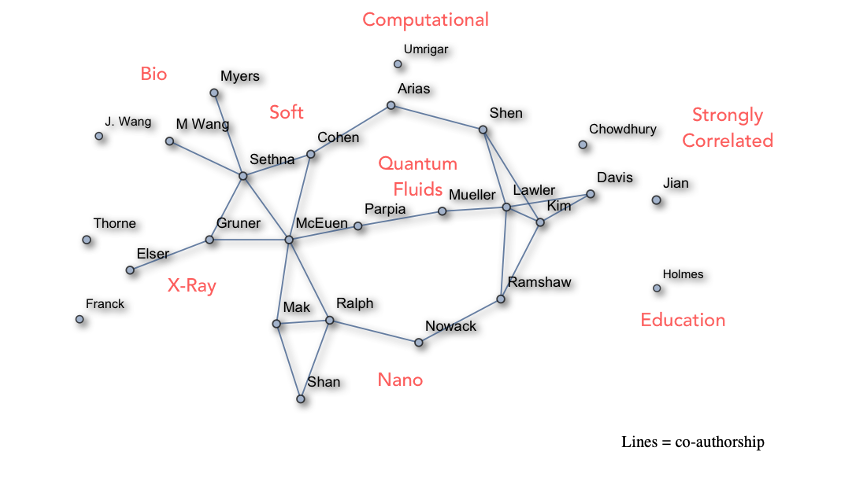Research
Research in LASSP covers a broad range of topics that can be roughly divided into two primary areas: quantum condensed matter, and biophysics & soft condensed matter physics.
Active research topics in LASSP in quantum condensed matter physics include: unconventional and high-temperature superconductors, artificially engineered heterostructures, two-dimensional materials and heterostructures, topological materials and phases, quantum information and computing, spin transport, density functional theory and ab initio electronic structure techniques, torque, and dynamics in quantum materials, nanoscale systems, strange metals, strongly correlated systems, frustrated magnetism, low-temperature quantum fluids, and Bose and Fermi condensates.
Active research topics in LASSP in biophysics & soft condensed matter physics include: complex fluids, colloids, polymer networks, single-molecule biophysics, molecular motors, nanoscale machines and robotics, atomic-scale kirigami and folding, x-ray protein crystallography, crackling, inverse problems and image reconstruction pertaining to single biomolecule x-ray diffraction, crackling and dynamical systems, complex systems, and pattern formation.
Researchers in LASSP are asking questions like these:
- What new states of quantum matter can we discover by artificially assembling layers of two-dimensional materials?
- Can we create nanoscale machines as easily as we build electronic circuits, and which could track and repair individual cells deep inside the body?
- Can we control the properties of quantum materials by building them up, atom by atom?
- How can we leverage new tools, such as machine learning, to help us understand new quantum states of matter?
Research is LASSP is also highly-collaborative, as evidenced by a recent illustration of the publication patterns for LASSP-affiliated researcher groups.

